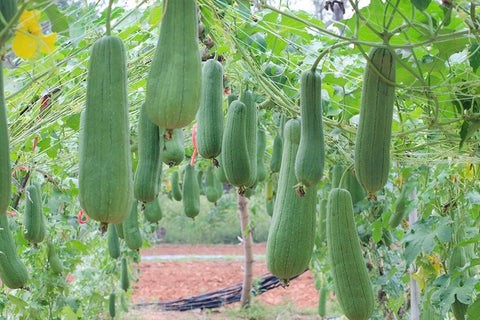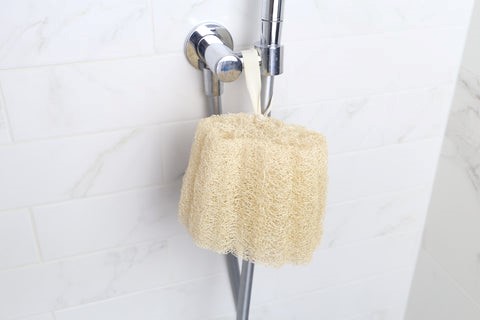No products in the cart.
News
What are loofah sponges made of?
Loofahs — sometimes spelled luffas — have been used for bathing since the days of the pharaohs. They are for a while a popular shower accessories used for cleaning and exfoliating the skin. Some people think that loofah sponges are made of sea sponge or dried coral because of their coarse, spongy consistency. But I need to tell you the truth, they don’t come from the sea.

Natural loofah sponges actually come from the fruits of vine-growing Luffa plants. Luffa or loofah is a vine-grown member of the pumpkin, squash, and gourd family, Cucurbitaceae. Though a few varieties are edible, most are cultivated for their utilitarian value. Not a typical garden vegetable, luffa grows slowly and matures well into autumn. It prefers plenty of sunshine, hot summer temperatures, adequate water, and well drained soil.
These plant-based sponges are gentle enough for daily use but tough enough to stand up to scrubbing. With this natural loofah sponge, you can detoxify your skin while you get clean.
How to use a loofah sponge?
Wet the loofah in the shower or bath. Warmer water will cause the loofah to get softer more quickly. If you want the loofah to retain some texture and scrubbing ability, just wet it slightly before proceeding. Apply body wash or bar soap to the loofah. Use it like a normal sponge.
Since any wet sponge can act as a reservoir for the transmission of pathogenic bacteria, it is better to rinse your loofah after every use to make sure there is no soap remaining in the sponge. Keep it dry. Store your loofah in a place where it can dry out.
Egyptian vs Asian loofah

There are two main species of loofahs: the Egyptian loofah (Luffa Aegyptiaca) and the Asian loofah (Luffa Acutangula).
There is a clear difference between the two types in terms of texture and flexibility. The loofah grown in Asia result in a softer fiber, non-water resistant, and less resilient with poor exfoliating power. But the Egyptian loofah gives a very resistant fiber. When wet, the fiber becomes flexible and soft, and much faster than the Asian loofah. It allows a very gentle contact on the skin while providing a very efficient exfoliation that lasts longer.
For the following reasons, the Egyptian loofah is highly recommended and used by estheticians, in SPAs, body care, and health centers.
Why use natural sponges instead of synthetics?

Synthetic scrubbers, sponges, and loofahs are made of plastics like nylon and polyurethane. They shed tiny bits of plastic, known as microplastics, every time you use them—contributing to the billions of pieces already in our rivers and oceans. One way to help reduce microplastics in our waterways is to switch to a natural body washing tool.
Besides that, natural sponges are much more absorbent than synthetic sponges. They are also biodegradable, making them a great choice for those looking to reduce their environmental impact. The natural loofah sponges are fully compostable. That means you can add them straight to your compost bin – they’ll break down and add nutrients to the soil. Or just throw them in your organic waste bin.
Safimex company has supplying Natural loofah with a good price for bulk order. If you are interested in this product, please feel free to contact us at info@safimex.com or click at https://www.alibaba.com/product-detail/Organic-loofah-sponge-for-exfoliating-and_11000010357756.html?spm=a2747.manage.0.0.6a062c3czxYnwz
Source: Beewise
SAFIMEX JOINT STOCK COMPANY
Head Office: 216/20a Duong Ba Trac Street, Ward 2, District 8, Hochiminh City, Vietnam.
Tel: (+84)-(28)-3636 2388 | (+84)-(28)-3636 2399 | Website: https://safimex.com/
